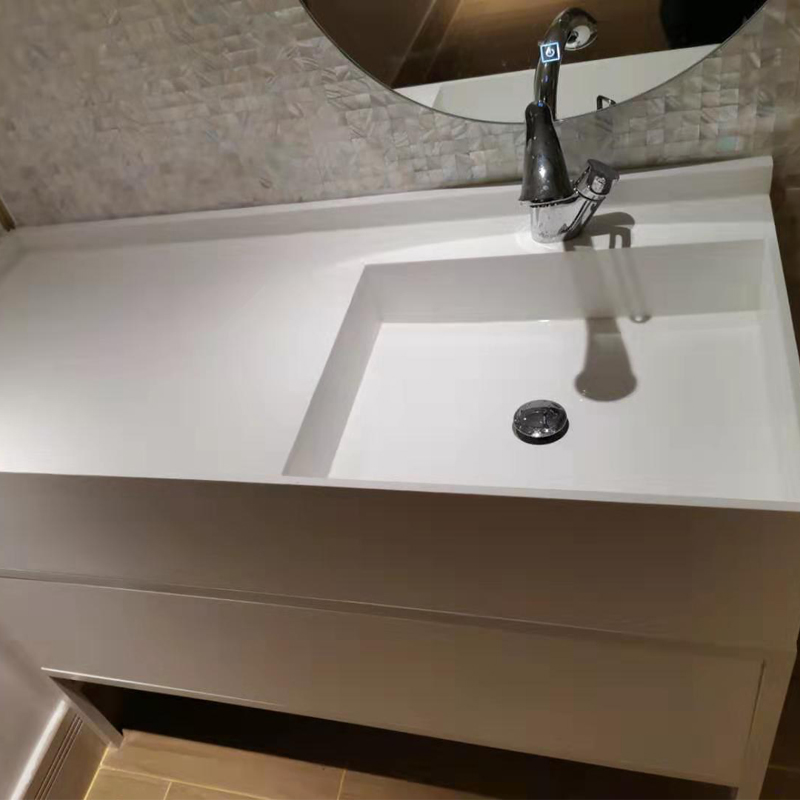
In recent years, sustainability has become a critical consideration in home design and renovation, influencing the materials consumers choose for various applications, including sinks. Quartz Sinks, made from a blend of natural stone and resins, have gained popularity not only for their aesthetic appeal and durability but also for their potential sustainability. This article explores the environmental impact of Quartz Sinks, focusing on materials sourcing, production processes, and overall sustainability.

Quartz Sinks are primarily composed of around 90-95% crushed natural quartz, a plentiful and abundant mineral found in the Earth's crust. The remaining 5-10% consists of resins, pigments, and other additives that enhance durability and appearance.
Natural Quartz: As a naturally occurring material, quartz is widely available and does not require extensive processing compared to more scarce materials. However, sourcing practices can vary. Responsible manufacturers prioritize mining practices that minimize environmental disruption and rehabilitate sites after extraction.
Resins and Additives: The synthetic components of quartz sinks raise questions about sustainability. Many manufacturers are now focusing on using low-VOC (volatile organic compounds) resins that contribute to healthier indoor air quality. Additionally, some brands are exploring bio-based resins made from renewable resources, reducing reliance on fossil fuels.
The production of quartz sinks involves several steps, each with varying environmental impacts. Here’s a closer look at the production process:
Manufacturing: The production of quartz sinks generally involves mixing crushed quartz with resins and pigments, which are then poured into molds to create sink shapes. This process often utilizes advanced technology that reduces waste and improves efficiency.
Energy Consumption: The energy used in the manufacturing process can contribute to the overall carbon footprint. However, many manufacturers are adopting energy-efficient practices and utilizing renewable energy sources to power their operations. This shift not only reduces greenhouse gas emissions but also aligns with the increasing demand for sustainable products.
Waste Management: During production, waste materials are generated, but sustainable manufacturers are implementing recycling programs to minimize waste. Surplus materials can often be repurposed in other products or processes, contributing to a circular economy.
One of the key sustainability aspects of quartz sinks is their durability. Made to withstand the rigors of daily use, quartz sinks are resistant to scratches, stains, and heat. This longevity means that they are less likely to need replacement, reducing waste over time.
Lifecycle Considerations: The extended lifespan of quartz sinks means that fewer resources are consumed over time. When a sink does need to be replaced, many quartz sinks can be recycled, further minimizing their environmental impact.
Quartz sinks require minimal maintenance compared to other sink materials. Their Non-Porous Surface prevents the absorption of liquids and bacteria, making them easier to clean with non-toxic cleaning agents.
Chemical Use: The reduced need for harsh chemicals in cleaning quartz sinks also contributes to a more sustainable household, as fewer harmful substances enter the water supply and the environment.
The sustainability of quartz sinks is influenced by various factors, including materials sourcing, production processes, durability, and maintenance requirements. While concerns about synthetic components exist, the growing trend towards using low-VOC resins and renewable energy in production is promising. As consumers increasingly prioritize sustainable choices, quartz sinks stand out as an option that combines functionality with environmental responsibility.
In summary, quartz sinks offer a blend of practicality and sustainability, making them a smart choice for environmentally conscious homeowners. By choosing quartz sinks from manufacturers committed to sustainable practices, consumers can enjoy the beauty and durability of these products while minimizing their environmental impact.